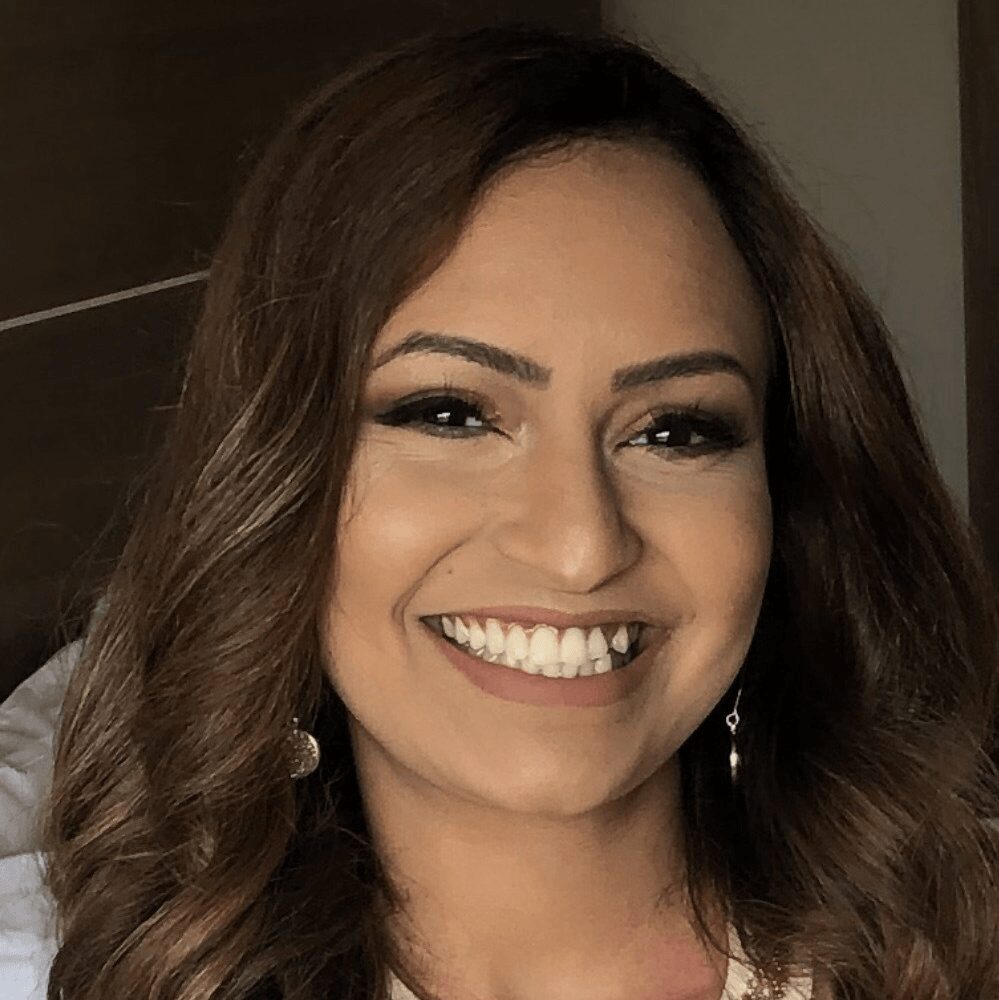Alright – so today we’ve got the honor of introducing you to Rahmah Albugami. We think you’ll enjoy our conversation, we’ve shared it below.
Hi Rahmah, thank you so much for opening up with us about some important, but sometimes personal topics. One that really matters to us is overcoming Imposter Syndrome because we’ve seen how so many people are held back in life because of this and so we’d really appreciate hearing about how you overcame Imposter Syndrome.
Overcoming imposter syndrome has been a significant part of my journey as a Clinical Director at Makin Wellness. As a Licensed Professional Counselor (LPC), I’ve faced my share of self-doubt, especially when stepping into leadership roles and guiding a diverse team of mental health professionals.
One key strategy that helped me was embracing continuous learning and professional development. I sought out mentorship and supervision from experienced colleagues, which provided me with valuable feedback and reassurance. Engaging in regular peer consultations and attending workshops not only enhanced my skills but also reinforced my confidence in my expertise.
Additionally, I focused on cultivating self-compassion and reframing my thoughts. Instead of dwelling on perceived inadequacies, I reminded myself of my accomplishments and the positive impact I’ve had on clients and the team. Keeping a journal of achievements and positive feedback from clients and colleagues served as a tangible reminder of my capabilities.
Another crucial aspect was building a supportive network. At Makin Wellness, we emphasize collaboration and open communication, which creates an environment where everyone feels valued and supported. Sharing experiences and challenges with my team helped normalize feelings of imposter syndrome and allowed us to uplift each other.
Lastly, I learned to accept that growth comes with discomfort. Embracing challenges and ‘expanding’ my comfort zone have been instrumental in overcoming imposter syndrome. Each challenge I faced and overcame further solidified my confidence and resilience.
By combining these strategies, I’ve been able to manage and gradually overcome imposter syndrome, allowing me to lead with confidence and authenticity in my role as Clinical Director.

Thanks, so before we move on maybe you can share a bit more about yourself?
I’m Rahmah Albugami, the Clinical Director at Makin Wellness, a virtual mental healthcare company. As a Licensed Professional Counselor (LPC), my role involves overseeing clinical operations, supervising our team of mental health professionals, and ensuring that we provide high-quality, accessible mental health services to our clients.
What excites me most about my work is the ability to make a meaningful impact on people’s lives through innovative and accessible mental healthcare. The virtual platform allows us to reach clients who might not have access to traditional in-person therapy, breaking down barriers related to geography, mobility, and even stigma. This inclusivity is what I find truly special about our approach at Makin Wellness.
Professionally, I am deeply focused on expanding our services and enhancing our clinical programs. We’re continuously working on integrating the latest evidence-based practices and technologies into our therapeutic approaches. This ensures that our clients receive the most effective and up-to-date care possible.
On a personal note, I am passionate about advocating for mental health awareness and education. I frequently engage in community outreach and educational initiatives to destigmatize mental health issues and promote wellness. It’s essential to me that we create a society where mental health is prioritized and accessible to everyone.
In summary, my journey at Makin Wellness is driven by a commitment to innovation, inclusivity, and excellence in mental healthcare. I am excited about the future and the many ways we can continue to make a positive impact on the lives of our clients and the broader community.
Looking back, what do you think were the three qualities, skills, or areas of knowledge that were most impactful in your journey? What advice do you have for folks who are early in their journey in terms of how they can best develop or improve on these?
Reflecting on my journey as a Clinical Director at Makin Wellness, three qualities and skills have been particularly impactful: empathy, adaptability, and leadership.
Empathy has been crucial in my role as a mental health professional and leader. It allows me to connect deeply with clients and understand their experiences, which is essential for effective therapy. Empathy also helps in building a supportive and collaborative team environment. For those early in their journey, practice active listening and put yourself in others’ shoes. Engage in reflective exercises, such as journaling about your feelings and experiences, to develop a deeper understanding of your own emotions and how they influence your interactions with others.
The mental health field is constantly evolving, with new research, technologies, and societal changes shaping how we provide care. Being adaptable has allowed me to stay current with best practices and integrate new approaches into our services. Stay curious and open to learning. Embrace change as an opportunity for growth rather than a challenge. Regularly seek out professional development opportunities, such as workshops, seminars, and certifications, to keep your skills and knowledge up to date.
Strong leadership skills have been vital in guiding my team, making strategic decisions, and fostering a positive organizational culture. Effective leadership involves clear communication, integrity, and the ability to inspire and motivate others. Develop your leadership skills by seeking mentorship from experienced leaders and observing their practices. Take on leadership roles in smaller projects or volunteer organizations to gain experience. Focus on building strong communication skills and learning how to give and receive constructive feedback. Networking: Build a professional network of colleagues, mentors, and industry experts. Networking provides support, advice, and opportunities for collaboration and growth.
Prioritize your mental and physical well-being. The mental health field can be demanding, and maintaining your own wellness is essential for sustaining your ability to help others. Stay connected to your passion and the reasons why you chose this field. Let your purpose drive you through challenges and keep you motivated.
By cultivating empathy, adaptability, and leadership, and by continuously investing in your personal and professional growth, you can make a meaningful impact in the mental health field and lead a fulfilling career.

Who is your ideal client or what sort of characteristics would make someone an ideal client for you?
While I believe that everyone can benefit from therapy, certain characteristics make someone an ideal client for me:
An ideal client is ready to actively participate in therapy sessions, openly share their thoughts and feelings, and work collaboratively towards their goals. This willingness to engage creates a strong therapeutic alliance, which is crucial for effective treatment. Clients who are open to exploring new perspectives and making changes in their lives tend to see significant progress. This openness includes being receptive to feedback, trying new coping strategies, and stepping out of their comfort zone when necessary. A strong commitment to personal growth and self-improvement is a key characteristic of an ideal client. This means not only attending sessions regularly but also applying the insights and skills learned in therapy to their daily lives. Mental health challenges can be tough, and clients who demonstrate resilience and determination to overcome obstacles tend to thrive in therapy. This inner strength helps them persevere through difficult moments and stay focused on their long-term well-being. Honesty and authenticity are essential for meaningful therapeutic work. An ideal client is willing to be truthful about their experiences, emotions, and struggles, even when it’s uncomfortable. This honesty allows for a deeper understanding and more effective intervention. Respect for the therapeutic process and a collaborative spirit are important. An ideal client views therapy as a partnership where both the therapist and client work together towards shared goals. This mutual respect and collaboration enhance the therapeutic experience. Given that Makin Wellness operates virtually, an ideal client is comfortable with and has access to the necessary technology for telehealth sessions. They can create a private, distraction-free environment for their therapy sessions.
Examples of Ideal Clients
Individuals Seeking Personal Growth: Clients who are motivated to understand themselves better and make positive changes in their lives.
People Facing Life Transitions: Clients navigating significant life changes such as career shifts, relationship changes, or major life events.
Clients Experiencing Stress or Anxiety: Individuals looking to develop effective coping strategies to manage stress, anxiety, or panic attacks.
At Makin Wellness, we are dedicated to providing compassionate, personalized care to all our clients. By working with individuals who embody these characteristics, we can create a therapeutic environment that fosters growth, healing, and lasting positive change.
Contact Info:
- Website: https://www.makinwellness.com
- Instagram: Makin Wellness
- Linkedin: https://www.linkedin.com/in/rahmah-albugami/

Image Credits
N/A
so if you or someone you know deserves recognition please let us know here.




